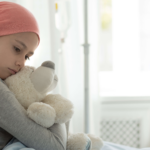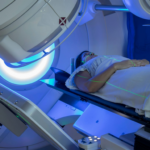
Cancer is a formidable adversary that affects individuals across all age groups, and the impact on young adults is particularly significant. While cancer is often associated with older populations, the diagnosis of cancer in young adults brings forth a set of unique challenges and considerations. In this comprehensive guide, we will explore the distinct aspects of cancer in young adults, including the challenges they face, the importance of recognizing their unique needs, and the role of comprehensive care provided by specialists like Dr. Jagdish Shinde at Cancer Care Pune (https://www.cancercarepune.com/).
Understanding Cancer in Young Adults:
1. Types of Cancers:
- Young adults can be diagnosed with various types of cancer, including but not limited to breast cancer, lymphomas, testicular cancer, and certain types of sarcomas.
- The prevalence of specific cancers may differ in this age group compared to older populations.
2. Delayed Diagnosis:
- Young adults may experience delays in cancer diagnosis due to factors such as misconceptions that cancer is rare in this age group, leading to delayed medical attention.
3. Impact on Fertility:
- The effects of cancer treatment on fertility are a significant concern for young adults, as many are still in their reproductive years.
- Cancer therapies, such as chemotherapy and radiation, can potentially impact fertility and may require fertility preservation measures.
4. Psychosocial Impact:
- Young adults diagnosed with cancer often face unique psychosocial challenges, including disruptions to educational and career plans, relationships, and financial stability.
- The emotional toll of a cancer diagnosis can be particularly profound at a stage in life when individuals are establishing their independence.
5. Survivorship Issues:
- Surviving cancer as a young adult comes with its own set of long-term survivorship issues, including potential late effects of treatment, ongoing mental health considerations, and the need for specialized follow-up care.
Challenges Faced by Young Adults with Cancer:
1. Isolation and Lack of Peer Support:
- Young adults with cancer may feel isolated due to a lack of peers going through a similar experience.
- Support groups and platforms tailored to their age group can be crucial for connecting with others facing similar challenges.
2. Educational and Career Disruptions:
- Cancer treatment may disrupt educational pursuits and career plans, impacting financial stability and future prospects.
- Young adults often require assistance in navigating these challenges, including support in managing educational and vocational goals during and after treatment.
3. Fertility Concerns:
- The potential impact of cancer treatment on fertility raises complex emotional and practical considerations for young adults.
- Access to fertility preservation options and counseling is essential to address these concerns.
4. Psychosocial Well-Being:
- Mental health considerations, including anxiety and depression, are prevalent among young adults with cancer.
- Comprehensive psychosocial support is crucial to address emotional well-being and enhance coping mechanisms.
5. Navigating Relationships:
- Managing relationships with partners, family, and friends can be challenging for young adults with cancer.
- Open communication and counseling can help navigate changes in relationships during and after treatment.
Conclusion:
Cancer in young adults represents a distinct and complex challenge that extends beyond medical considerations. Recognizing the unique needs and challenges faced by this population is crucial in providing effective and compassionate care. Specialists like Dr. Jagdish Shinde at Cancer Care Pune play a vital role in offering comprehensive care that addresses medical, emotional, and psychosocial aspects, fostering resilience and empowering young adults to navigate their cancer journey with strength and support. As research and advocacy efforts continue to evolve, the landscape of care for young adults with cancer holds promise for improved outcomes and a brighter future for survivors in this age group.




